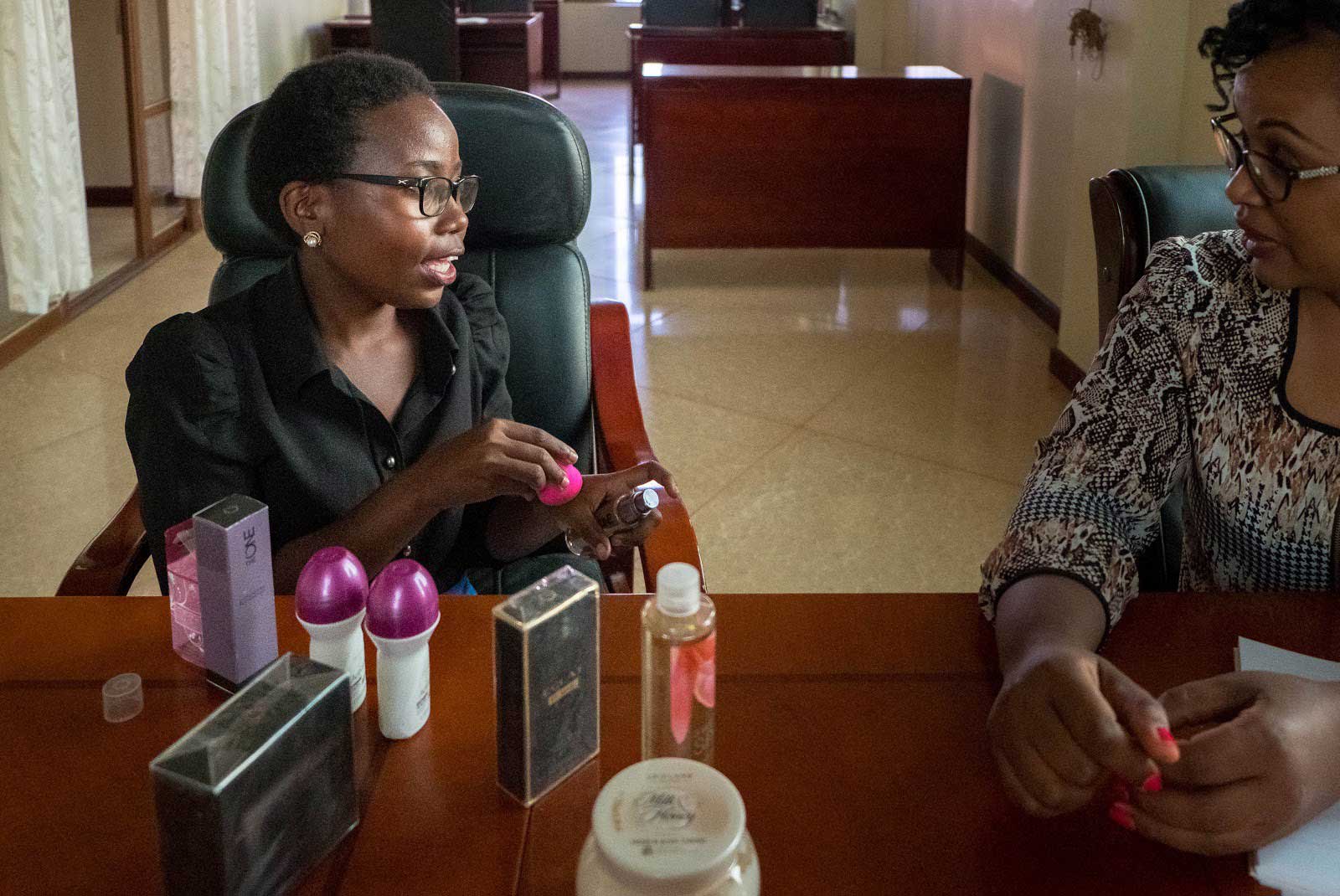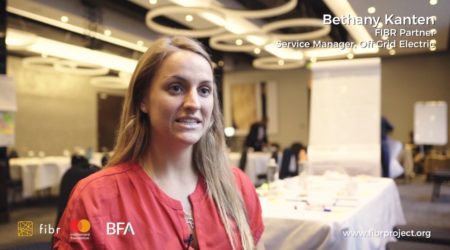How Small Merchants Use Social Media to Sell Online in Africa
Superplatforms & Small Merchants Series #2

Meet Agnes, Moses, & Anita
Traditional, “informal” retailers dominate the commercial landscape in Tanzania, even among the growing segment of middle-class consumers. About 90 percent of commerce in Africa occurs at these informal retailers, which include small independent stores, streetside kiosks, and open-air markets. Although informal, these retailers are pioneering the use of social media and superplatforms to market and sell their merchandise.
We conducted field research in Tanzania to study merchant practices, and understand the value proposition superplatforms present to merchants and vice-versa.
We found that, in their usage of superplatforms, merchants fall into three types: experimental, unstable, and stable. While experimental merchants tend to innovate and experiment to find different use cases for superplatforms, unstable merchants are more risk-averse and only copy what they observe others doing. Stable merchants are the “expert users” who are more skilled and have established businesses.
Type 1: Experimental online MSMEs
Experimental merchants are hands-on and have time to do their own research and digging about selling online. They are basically experimenting, trying various techniques and approaches to see what gets traction. This approach exposes them to risk in a very controlled way. Although they want to avoid failure, they are willing to fail in small ways to learn and develop high-risk opportunities. Being willing to learn — both from the ideas that succeed and those that fail — allows these merchants uncover successful ideas that help their online businesses.
Experimental online merchants are in the initial investment phase of their lifecycle. If successful they move to the stabilization stage or straight to the growth stage.
Key Behaviors:
- Exploratory
- Risk-tolerant
- Trial and Error
Meet Agnes: Agnes is 27 and, like many young people, she is active on social media, namely, Instagram, which is very popular in Tanzania. She found that when posted photos of herself wearing nice clothes and stylish accessories, she attracted likes. And when she got requests to help buy these items, she realized that her interests and talents could become an opportunity to make money.

Now, Agnes posts pictures and if a prospective customer pledges to buy an item, she acquires it from a local seller, delivers it herself, and collects the cash. In some cases, she sources something from China and it takes 1–2 months to be delivered, so she has to confirm with the prospective customer to make sure they are on board and will not disappear (churn).
But this business is not steady, so she also has a food business making biryani, a popular lunch item. With her food business, Agnes is also good at navigating social platforms. She uses Instagram to post, pushes to FB because it has the most reach, and then moves prospective customers to WhatsApp for one-on-one conversations to convert to a sale. She also updates her WhatsApp status every day and does content marketing.
Agnes notes that it is all about high-quality photos. If your posts don’t look good, things do not get likes, and they will not sell. She upgraded to an iPhone as she says it takes better photos.
Agnes did not have savings to start her business, but she didn’t need to; all the services she uses are free. This lower cost-of-entry is great for young entrepreneurs, but it also means she does not have assets to draw from as her business grows. For instance, she needs more capital to take orders and purchase products and supplies (before getting paid for them) to grow her business.
Agnes is an informal merchant, so she cannot get loans (she does not have any formal credit history). She has experimented with new loan products, such as digital credit, but they often make her wait, jump through hoops, and disbursed smaller amounts than she needed.
Type 2: Unstable Online MSMEs
Unstable merchants are highly influenced by the success of other merchants selling online. They are not certain what online business holds for them, so they are risk-averse and hesitant to try out new tools or ideas until they see other merchants they know using them successfully. These merchants have heard other online sellers, especially those who are stable, say that their online reputation is key to driving sales and that they work hard towards building their online presence. These merchants consider their identities to be “brands”.
Unstable users of superplatforms are in the expansion phase of their lifecycle. If for some reason they fail, these merchants will go back to the beginning but if they succeed, they move to the stabilization stage.
Key Behaviors:
- Wait and see
- Copy others
- Uncertain about plans

Meet Moses: Moses is 35 years old and has business experience. He used to work in the hotel industry, but decided to open his own business in Dar, selling his mother’s famous recipe for biryani (like Agnes).
In 2 years, he’s gone from serving 30 plates every Friday to 200 plates. But he’s struggled as the business has grown and is always looking to others for what to do next, which is why we think of Moses as an “unstable user of superplatforms”.
Moses credits his growth to hashtag campaigns in which he gives away plates of biryani for free if you mention him on Twitter. This technique has built him a large follower base. He also uploads photos to social networks, and uses the responses to project how many plates he may sell. Using social media means he has to stay on top of quality, making sure the packaging is clean and sauce containers don’t spill. Moses also posts on Instagram and Facebook. Like Agnes, he bought a new iPhone to improve the quality of his photos and has dedicated one of his phones to communicate with his clients and suppliers. He spends a lot of time keeping in touch with customers.
Moses does all this by himself so he has hit operational bottlenecks and bandwidth constraints. He does not have a lot of ideas on what to do next. He is considering hiring a social-media assistant and wants to hire a customer-service manager, but these are significant expenses so he remains unsure of his next steps.
It would help Moses if superplatforms could automate customer care services and integrate seamless payment systems since he struggles with proper record keeping.
Type 3: Stable Online MSMEs
Stable users of superplatforms are either tech savvy or have a friend or family member with technical skills who helps them out, pointing them to the right tools for increasing sales, attracting new customers, and retaining old customers. They capitalize on this technical support to utilize powerful marketing communication channels, and they realize that retailer reputation is a precious resource that can only be earned by hard work and time invested. These merchants do not hesitate to spend money on paid advertisements and marketing materials because they believe these expenses demonstrate to their customers that they will go the extra mile.
Key Behaviors:
- Have assets/collateral like brochures, website, promotional pictures
- Resilient to shocks
- Tech savvy
Meet Anita: Anita is 30 years old, she holds a masters degree in Project management, and has a full-time job as an administrator in a blue chip company.

She started her online business selling cosmetics products from Oriflame to supplement her income, calling it her “side-hustle”.
Anita has the privilege of having access to, and experience using, formal financial services. She has several bank accounts, has taken out a bank loan, and has multiple debit cards that she uses to pay for Instagram ads.
Anita goes out of her way to satisfy her customers and to build strong relationships with them. When one of her customers noted that she was allergic to a common ingredient in cosmetics, Anita’s researched the ingredient, met with the customer, and exchanged the item.
Anita uses her work experience and the training she has received at Oriflame to keep good records of her business. In addition, she was one of the few online MSMEs we spoke to who uses paid Instagram ads. She knows how to spend just $1–2 a day on targeted ads and what times of day to post to attract traffic to her page. She also creates her own online marketing materials using apps to help attract more followers to her social media pages.
Anita is in her comfort zone, or stabilization phase, and does not really aspire to grow her business because she is afraid the workload will be too much given her full-time job. She is happy that social networks provided an avenue for her to earn extra income in a convenient way.
Superplatforms offer informal merchants new and powerful ways to sell. With further automation, these platforms could provide even more value.



